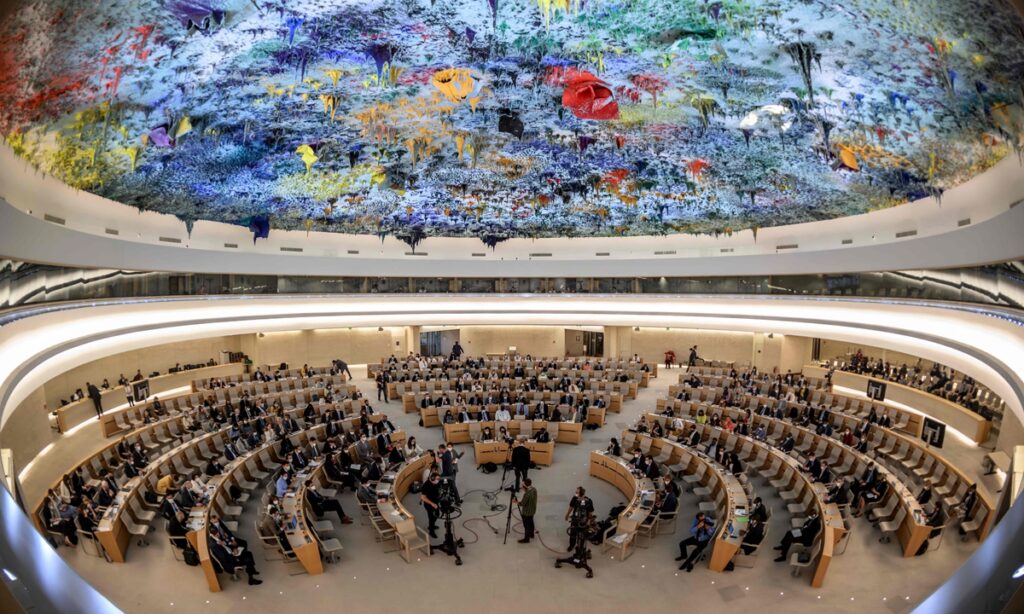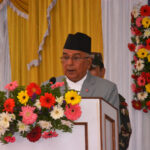Ideological divide, cold war mentality worry intl community
While the politicization of human rights has alarmed more academics and nations, some Western countries and anti-China forces have not ceased their efforts and are attempting to reduce China’s votes at the upcoming UN Human Rights Council that is slated to take place on Tuesday, using unfounded accusations about China’s human rights record.
Analysts said the West’s moves to incite ideological divides at the UN human rights body have not only raised concerns about the spread of a Cold War mentality, but also diverted international attention from core human rights issues.
On Tuesday, the UN General Assembly is scheduled to elect 15 new members to the UN Human Rights Council, which will serve for a period of three years starting in January 2024. The slate for the 2023 Asian group is uncontested since China, Japan, Kuwait, and Indonesia are vying for the four Asia slots.
To be elected, candidates must get a simple majority of the votes. However, certain Western countries and anti-China organizations are touting a campaign to pressure other countries to deny China a seat. For example, Human Rights Watch, a nongovernmental organization known as one of the US’ tools to manipulate human rights issues, said in a release on October 5 that China’s rights record “disqualified” it from the Human Rights Council.
Some Western countries are also working to deny Russia a seat at the council as Albania, Bulgaria and Russia are vying for two seats in the Eastern European group.
Analysts raised their concerns about the growing severe ideological rift incited by the West against China and other developing countries, and lambasted the US and some Western countries for playing politics in the UN Human Rights Council.
To further their geopolitical goals and maintain their hegemony, the US and some Western countries have set up ideological camps and exploited human rights as instruments. They also tried to use baseless accusations about China’s Xinjiang region to smear China, Wang Fuliang, deputy dean of the School of Law in Beijing Institute of Technology, told the Global Times on Monday.
Some anti-China parties have been using the human rights of ethnic groups in China’s Xinjiang and Xizang regions as a focal point for their criticism of China at several Human Rights Council meetings. However, analysts noted that more countries that uphold justice have firmly backed China.
Since the falsehoods about China’s Xinjiang and Xizang regions have been rejected by the facts, more countries, particularly developing ones, have come out in support of China, Zhu Yuanqing, deputy dean of the Human Rights Institute School of the Southwest University of Political Science and Law, told the Global Times on Monday.
Moreover, the growing recognition of China’s exploration of its own path on human rights development is another factor in the expansion of China’s “circle of friends” in the UN Human Rights Council, said Zhu.
While China has included the right to subsistence and development in its definition of human rights, the West mainly takes political rights into consideration when defining it. The US and the West were concerned about China’s increasing influence at the UN Human Rights Council, said the expert.
As a result, some Western media have accused China of using its “power and influence” to try to silence criticism of its human rights. But it is the US and the West that have long adopted double standards on human rights issues to bully developing countries and point fingers at those countries’ internal affairs while turning a blind eye to their own deep-seated problems, analysts said.
Wang, who attended the 54th session of the Human Rights organization in Geneva, claimed that given the US and the West’s deep involvement in the international organization’s operations, scholars and NGOs from these countries may also occasionally sense bias and injustice toward the human rights situation in China and other developing countries.
The Human Rights Council should act as a platform for all of its members to better promote a variety of human rights, and it should be reformed to make it more equitable and to reverse the politicized tendency and the impact of the Cold War mentality that the US and the West supported, said Wang.
(Global Times)




